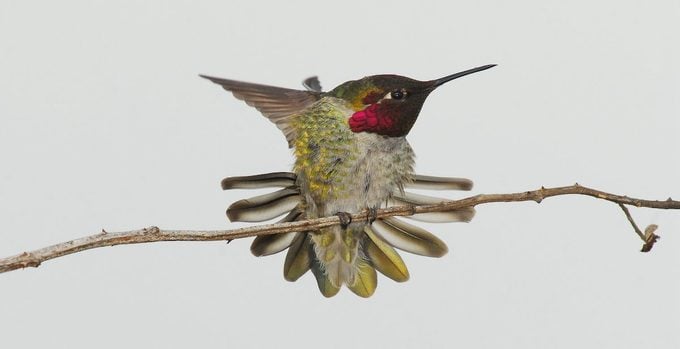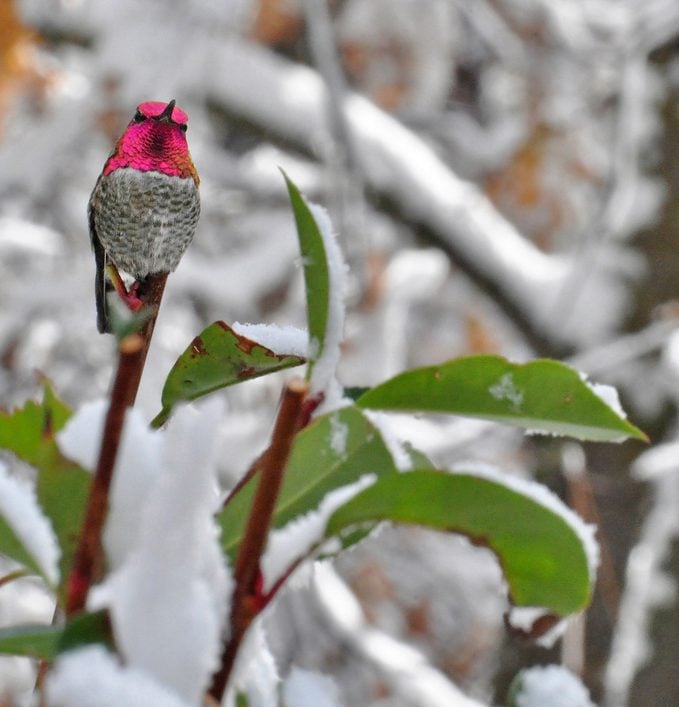How Do Hummingbirds Survive Snow and Cold Weather?
Updated: Feb. 28, 2023
Hummingbirds are tough and tiny birds. Learn how to keep feeding them during winter and the truth behind common myths about hummingbird migration.

I have heard many people say they wished their hummingbirds would migrate south so they do not freeze. And many others have said they were taking hummingbird feeders down so they wouldn’t stop the birds from migrating. Both are inaccurate—hummingbirds are not wimps and food does not interfere with their migration.
The experts at the Cornell Lab of Ornithology state:
- A number of factors trigger the urge for birds to migrate, but the most significant one is day length. When the days get shorter, the hummingbirds will move on, regardless of whether there are still filled feeders available for them.
- We do, however, encourage people to keep their hummingbird feeders full for several weeks after they have seen the last hummer just in case there are stragglers in need of additional energy before they complete their long journey south.

Hummingbirds are Hardy
There are many documented reports of hummingbirds that survive snow and freezing temperatures. In fact, Anna’s hummingbirds winter in the state of Washington where they endure cold periods well—as long as they have food sources. The Seattle Audubon Society states, “If you have been feeding the hummingbirds and they have become accustomed to finding food in your yard, we would encourage you to continue this responsibility of maintaining this food supply as much as possible through the cold snap.” In fact, feeding the hummingbirds in winter is how this birder ended up with more than 75 of them in her yard!
How do these little birds survive? Again, they are much hardier than many believe. And they have the ability to go into a state of torpor. This is a type of deep sleep where an animal lowers its metabolic rate by as much as 95 percent. By doing so, a torpid hummingbird consumes up to 50 times less energy when torpid than when awake. Learn more about hummingbird behavior.
If you do have a hummer coming to your feeder during snowy and very cold weather, be sure to either take the feeder in at night and put it back out early in the morning so the hummer can get the fuel it needs to survive. Or try one of the tips from the Seattle Audubon Society for keeping the sugar water from freezing.